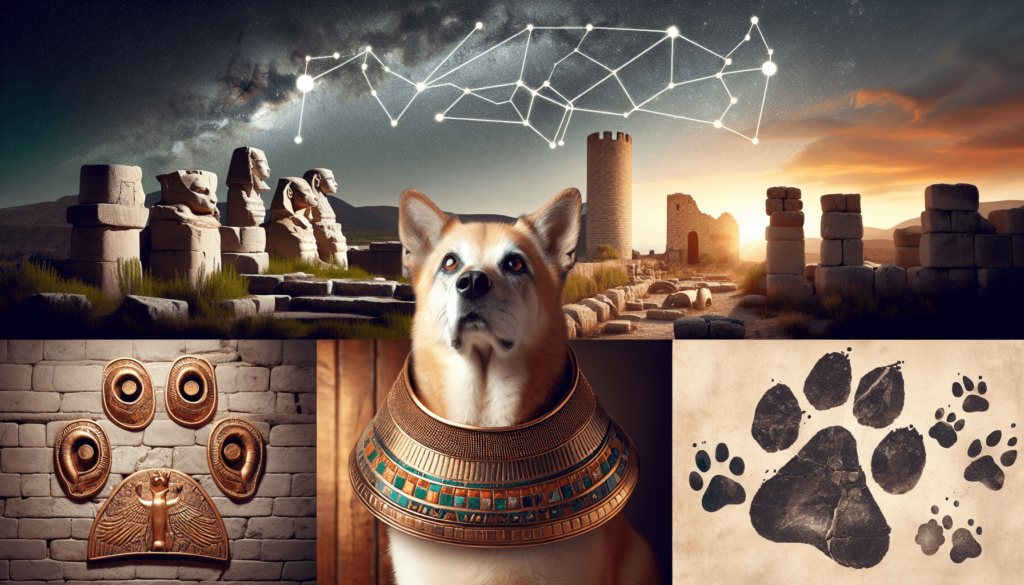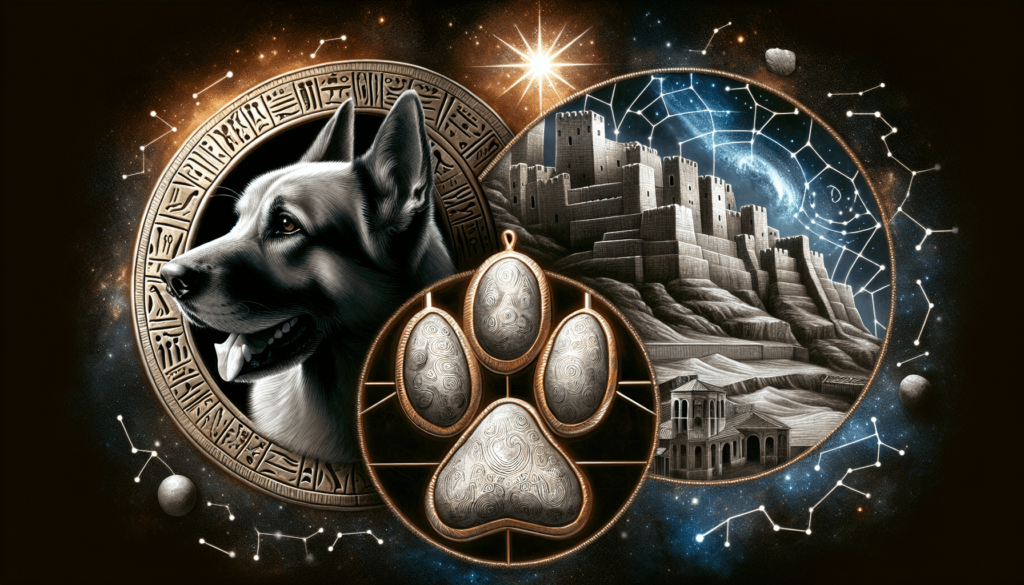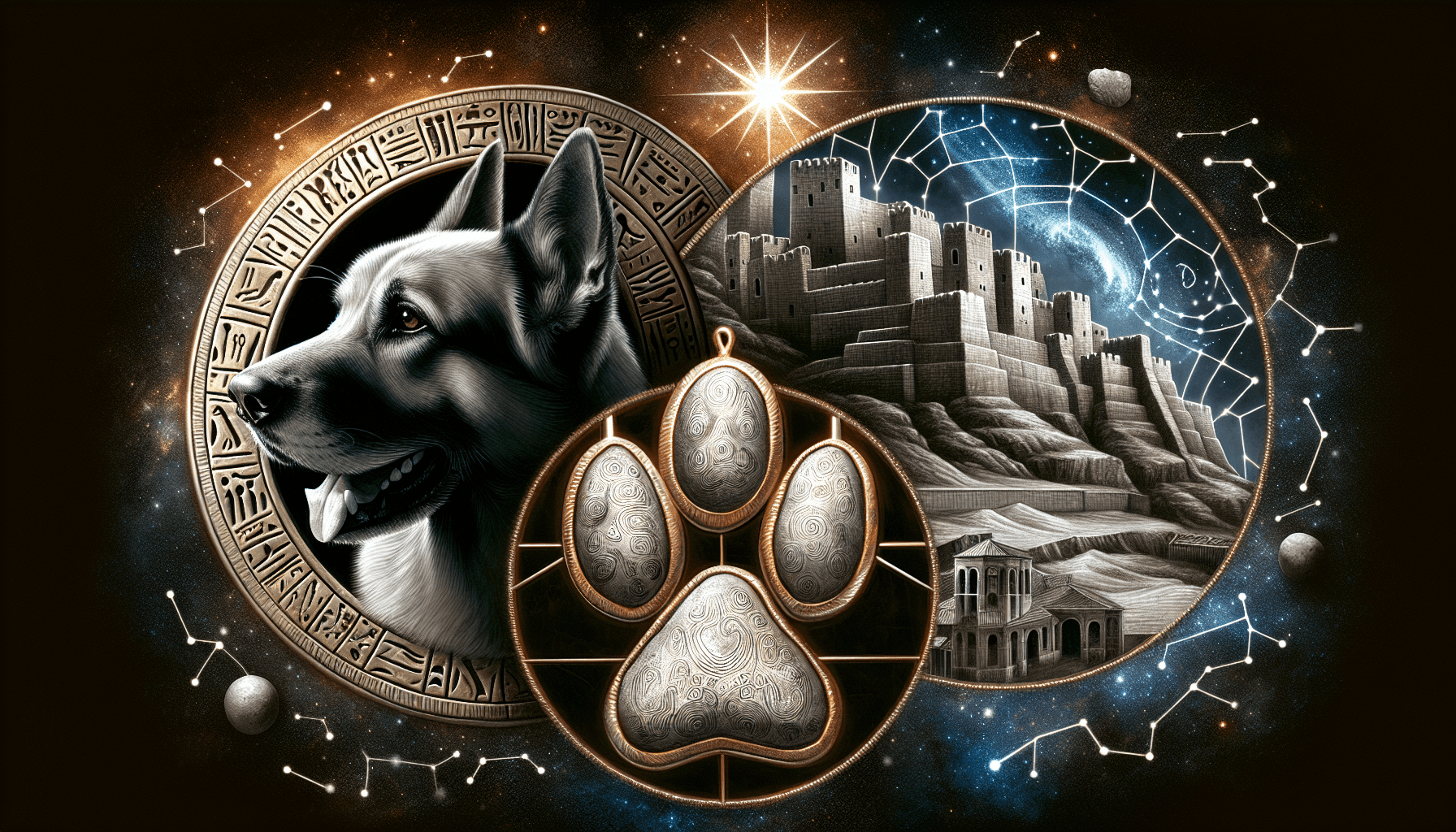Imagine a world without our four-legged companions, where our lives were devoid of their unwavering loyalty and boundless love. Throughout the ages, dogs have played an integral role in shaping the course of human history. From their earliest domestication to their roles as faithful companions, guardians, and even working partners, dogs have made a profound impact on the evolution of human society. In this article, we will explore the fascinating journey of our furry friends, tracing their significant contributions and the profound bond they share with us. Join us on this remarkable exploration of the pivotal role that dogs have played in human history.
Companionship
Emotional support
Dogs have long been known as man’s best friend, providing emotional support and companionship. Whether you’re feeling down or simply looking for someone to talk to, your loyal canine companion will always be there to lend an ear and offer unconditional love. Their presence alone can bring a sense of comfort and reassurance, making them perfect companions for those who may be feeling lonely or isolated.
Reduced loneliness and stress
Studies have shown that owning a dog can significantly reduce feelings of loneliness and stress. The companionship and unconditional love that dogs provide can help ease feelings of isolation, especially for individuals who live alone or who may be going through difficult times. Simply petting a dog can lower blood pressure and release endorphins, which can have a positive impact on mental health.
Improved mental health
The presence of a dog can also have a profound impact on mental health. Dogs are known to provide a sense of purpose and routine, as they require regular exercise and care. This can be particularly beneficial for individuals struggling with mental health issues, as it can provide a sense of structure and responsibility. Additionally, dogs have been shown to help reduce symptoms of depression and anxiety, providing a soothing presence and an innate ability to sense and respond to their owner’s emotions.
Hunting and herding
Assisting in hunting
For thousands of years, dogs have played a crucial role in hunting alongside humans. Their acute senses, agility, and instinctual hunting abilities make them valuable allies in the pursuit of game. Dogs can track scents, locate and retrieve prey, and even help with trapping and cornering animals. Their natural hunting instincts have been honed and selectively bred over generations, making them highly skilled companions for hunters in various parts of the world.
Guarding livestock
Dogs have also been a vital part of livestock management, serving as protectors and guardians. Their presence alone can deter potential predators and intruders, ensuring the safety and well-being of valuable livestock. Some breeds, such as the Great Pyrenees and the Komondor, are renowned for their ability to guard and protect large herds from wolves, coyotes, and other threats.
Herding and managing livestock
Many herding dog breeds, such as the Border Collie and the Australian Shepherd, have been specifically bred to assist in the management and control of livestock. These highly intelligent and trainable dogs excel in herding and can efficiently guide and move animals from one place to another. Their natural instincts and ability to follow commands make them indispensable partners for shepherds and farmers.

Working dogs
Sled dogs
In cold and snowy regions, sled dogs have played a vital role in transportation and exploration. These hard-working dogs, such as Siberian Huskies and Alaskan Malamutes, have remarkable endurance and strength, allowing them to pull sleds loaded with people and supplies across long distances. Their ability to navigate through difficult terrain and extreme weather conditions has made them indispensable in Arctic and Antarctic expeditions.
Search and rescue dogs
In times of disasters and emergencies, search and rescue dogs prove to be invaluable assets. Their superior sense of smell and agility enable them to locate and save people trapped under rubble or in other hazardous situations. These dogs undergo extensive training to detect scents and respond to commands, making them highly effective in search and rescue operations.
Police and military dogs
Dogs have long been utilized in law enforcement and military operations due to their intelligence, loyalty, and versatility. Police dogs, such as German Shepherds and Belgian Malinois, assist in tracking down criminals, detecting drugs and explosives, and providing additional security measures. Similarly, military dogs are trained to perform tasks such as bomb detection, patrol, and apprehension, protecting soldiers and enhancing operational efficiency.
Service and therapy dogs
Guide dogs for the blind
Guide dogs have been instrumental in assisting individuals with visual impairments. These highly trained dogs provide navigation assistance, helping to guide their owners safely through various environments. With their keen senses and ability to follow commands, guide dogs offer a sense of independence and freedom for individuals who are blind or visually impaired.
Assistance dogs for people with disabilities
Assistance dogs are trained to help individuals with disabilities overcome daily challenges and enhance their independence. These dogs can be trained to perform tasks such as opening doors, retrieving dropped items, and providing stability and balance for individuals with mobility impairments. By offering physical support and assistance, these dogs can greatly improve the quality of life for people with disabilities.
Therapy dogs for emotional support and healing
Therapy dogs provide comfort, emotional support, and companionship to individuals in various settings such as hospitals, nursing homes, and schools. These specially trained dogs have a remarkable ability to sense and respond to human emotions, offering comfort and companionship to those who may be facing physical or emotional challenges. Their presence alone can help reduce anxiety, provide a sense of calm, and promote healing and well-being.

Symbolism and religion
Dogs in ancient mythology and folklore
Dogs have been revered and held in high regard in many ancient mythologies and folklore. In Greek mythology, for example, dogs were often associated with loyalty and protection. The three-headed dog Cerberus guarded the entrance to the Underworld, while the hunting dog constellation, Canis Major, was said to accompany Orion on his celestial hunts. In Norse mythology, dogs were believed to be the companions of the gods and were associated with strength and bravery.
Dogs as spiritual guides and protectors
Throughout various spiritual practices and religions, dogs have been seen as spiritual guides and protectors. In some Native American cultures, dogs were believed to be messengers between humans and the spirit world, guiding souls on their spiritual journey. In Hinduism, the dog is considered a sacred animal and is associated with Dharma, the god of death and reincarnation. Dogs are often depicted as loyal and protective beings, symbolizing qualities such as loyalty, devotion, and guardianship.
War dogs
Dogs in ancient warfare
Dogs have a long history of serving alongside humans in warfare. In ancient times, dogs were used by various civilizations for their tracking, guarding, and attack capabilities. They were often trained to wear armor and used in battle to help protect armies and gain a tactical advantage. Dogs were also employed as messengers, carrying small bags or containers with vital messages across dangerous territories.
World War I and II war dogs
In World War I and II, dogs played a significant role in military operations. They were employed as messenger dogs, search and rescue dogs, and even as sentries to alert soldiers of approaching enemies. These highly trained dogs provided valuable assistance by delivering messages between troops and saving countless lives through their search and rescue efforts. Their loyalty, courage, and intelligence made them indispensable in the harsh and dangerous conditions of war.
Modern military dogs
Even in modern times, dogs continue to serve in various military and security roles. Highly specialized military dogs are trained and utilized for tasks such as bomb detection, tracking down enemies, and providing additional security measures. These dogs undergo rigorous training programs to ensure their effectiveness and safety, playing a crucial role in modern warfare and counter-terrorism efforts.
Exploration and travel
Dogs in Arctic and Antarctic exploration
Dogs have been essential companions in expeditions to the Arctic and Antarctic regions. Their ability to withstand extreme cold temperatures and navigate through treacherous terrain has made them invaluable in exploration and travel. In the early 20th century, legendary explorers such as Roald Amundsen and Sir Ernest Shackleton relied on sled dogs to pull their sleds and transport supplies during their historic expeditions.
Canine companions on expeditions
Beyond polar explorations, dogs have accompanied humans on various expeditions and journeys throughout history. From early adventurers crossing vast landscapes to modern-day trekkers hiking challenging trails, dogs have provided companionship and assistance. Their boundless energy, endurance, and unwavering loyalty make them ideal partners for explorers seeking support and friendship during their travels.
Medical and scientific advancements
Dogs in medical research
Dogs have played a significant role in medical research, contributing to advancements in various fields of study. Through carefully conducted experiments and observations, scientists have gained insights into the physiological and behavioral aspects of dogs, which have proven useful in understanding human health. Dogs have been instrumental in the development of treatments for diseases such as diabetes, cancer, and heart conditions, paving the way for medical breakthroughs and improved healthcare.
Canine detection of diseases
Dogs possess an extraordinary sense of smell, making them capable of detecting certain diseases and medical conditions. Their keen sense of smell has been utilized to identify cancerous cells, detect low blood sugar levels in individuals with diabetes, and even detect the presence of certain infections. This canine ability to detect diseases at an early stage has the potential to save lives and revolutionize medical diagnosis and treatment.
Canine-assisted therapy
Therapeutic interventions involving dogs, known as canine-assisted therapy, have been employed to aid in mental and physical healing. Interacting with dogs in a therapeutic environment can have numerous benefits, including reduced anxiety and stress, improved mood, enhanced social skills, and increased motivation in rehabilitation. Dogs provide a soothing and non-judgmental presence, facilitating the healing and recovery process for individuals receiving therapy.
Art and literature
Dogs as subjects in art
Throughout art history, dogs have been celebrated as subjects in various forms of artistic expression. From ancient cave paintings to Renaissance masterpieces, dogs have appeared in art as symbols of loyalty, companionship, and innocence. Their presence in artwork often represents human emotions and relationships, capturing the essence of the human-dog bond.
Dogs in literature and storytelling
Dogs have been featured prominently in literature and storytelling across different cultures and time periods. From classic novels to children’s books, dogs have been portrayed as faithful companions, protectors, and teachers. Their loyalty, bravery, and unwavering love resonate with readers of all ages, making them beloved characters within the realm of storytelling.
Breeds and selective breeding
Purposeful breeding for specific traits
Humans have selectively bred dogs for specific traits and purposes throughout history. By intentionally pairing dogs with desirable traits, such as size, strength, agility, and temperament, various breeds were developed to excel in specific roles. This purposeful breeding has led to a wide range of breeds, each with unique characteristics and capabilities.
Diversity and evolution of dog breeds
The selective breeding of dogs has resulted in a vast and diverse array of dog breeds, each with its own distinctive traits and characteristics. From small, toy breeds to large working breeds, dogs now come in a wide range of sizes, shapes, and temperaments. The continued evolution and development of dog breeds highlight the adaptability and versatility of dogs in meeting the changing needs and preferences of humans throughout history.
In conclusion, dogs have played an indispensable role in human history, serving as loyal companions, working partners, and even spiritual guides. Their unwavering loyalty, intelligence, and adaptability have allowed them to form an unbreakable bond with humans. From providing emotional support and companionship to assisting in hunting and herding, dogs have enhanced the lives of humans in countless ways. Whether it’s in the fields of medicine and scientific research or in art and literature, dogs have left an indelible mark on human history, making them truly deserving of the title of man’s best friend.

